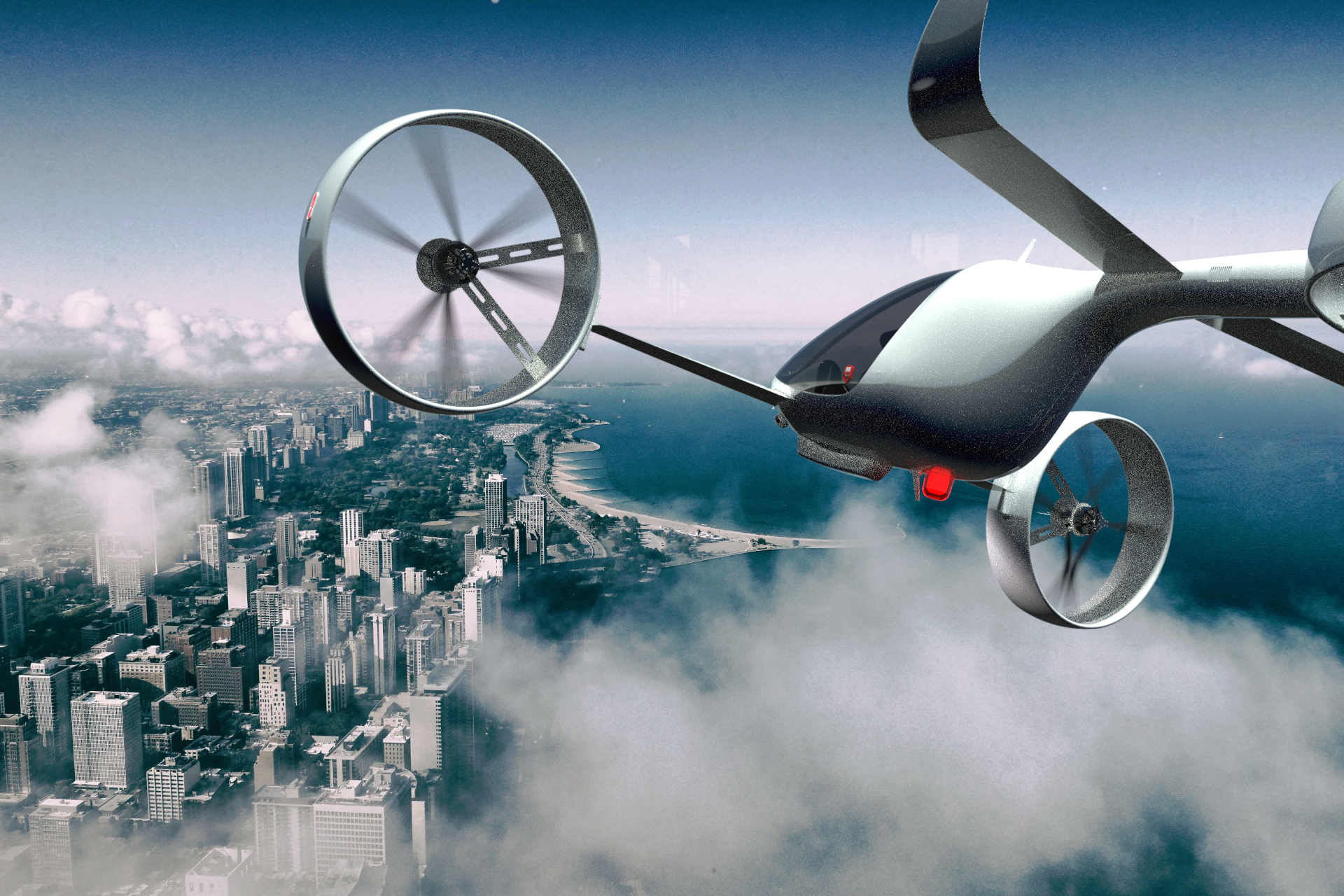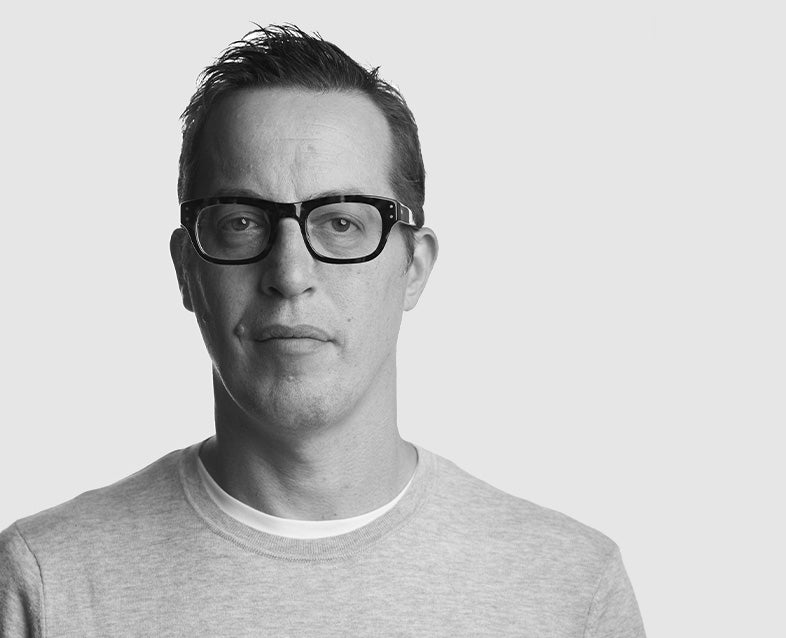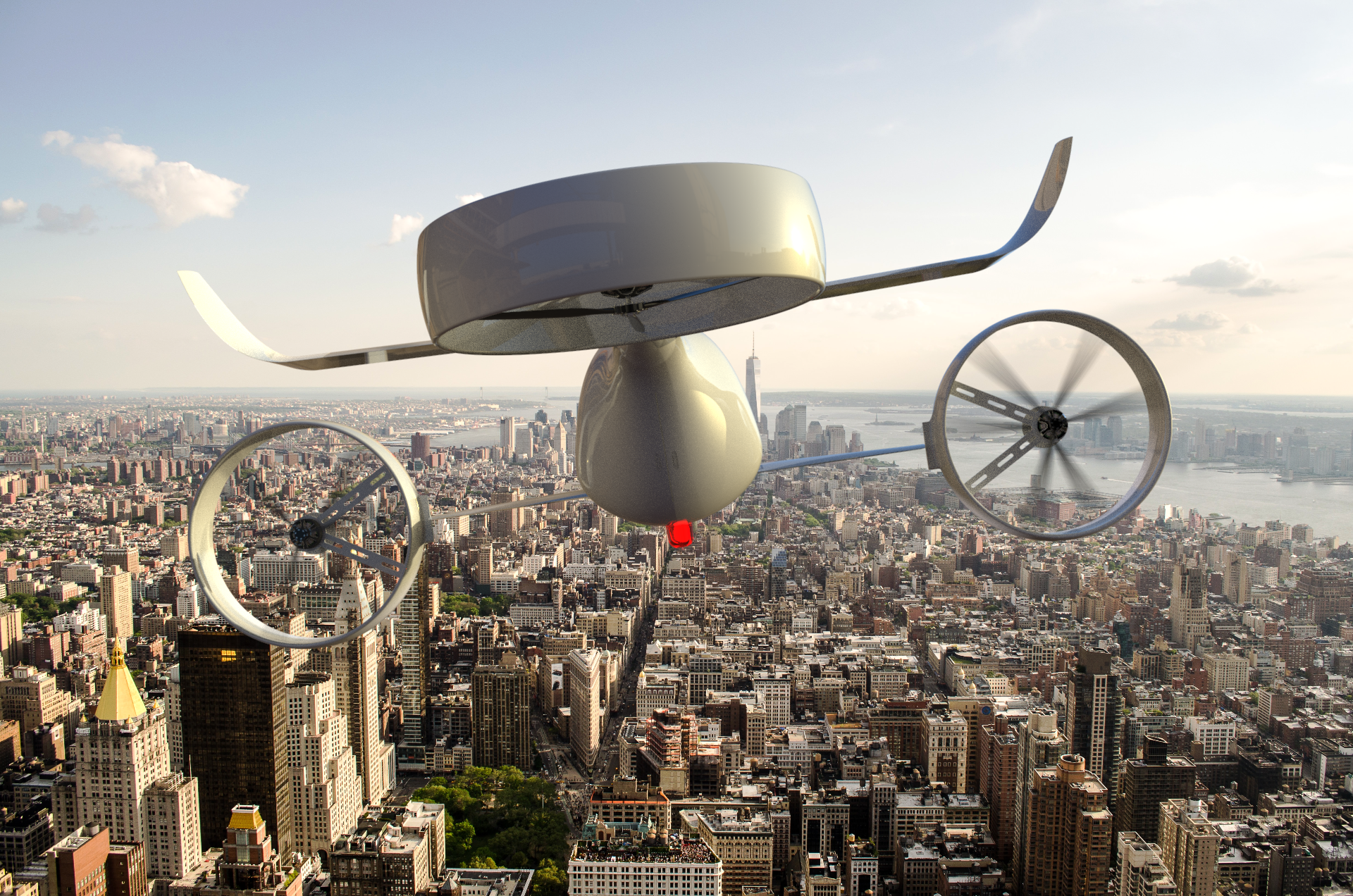Is Martin Warner, with his flying vehicles, Britain’s answer to Elon Musk?
Martin Warner works a 12-14 hour day on a raft of different projects. He spoke to Andy Martin about Autonomous Flight and how we’re more likely to ride in one of his vehicles than in SpaceX


He has been described as Britain’s answer to Elon Musk. It’s a comparison that is not, as I discovered, that far-fetched – and the fact is, you are more likely to be taking off in one of Martin Warner’s Autonomous Flight eVTOL (electric vertical take-off and landing) vehicles than in SpaceX in the near future.
With his thick-rimmed glasses he reminds me of an older Buddy Holly. But Warner is more of a rock-star entrepreneur – an inventor, a film fan and a cigar aficionado. He is the definition of a multi-hyphenate, working a 12-14 hour day on a raft of different projects, like a chess master playing a dozen games simultaneously. “I try and tell my kids not to be narrow,” he says. He sets a good example.
And he got started young, too. At the age of 11, growing up in Kent, finding his customers in the playground, he started renting out games for the Atari console at £1 a night. But the headteacher soon put a stop to this promising start-up. “He took all my games and gave them to his kids,” says Warner.
Next it was cowboy belts. They were very popular at the time. He found them selling at £4 on a market stall, and told his father he wanted to buy the entire stall. His dad must have had faith in this budding business genius, because he funded the initial investment of £450 for more than a hundred belts. The young Warner sold them in local schools at £6.50 a time. “I added the 50 because it made it more like a bargain. You couldn’t buy one in the shops for less than £15. After that they started calling me ‘Arthur Daley’” – the shrewd but slightly dodgy wheeler-dealer of Minder fame. He was still only 12.
Then he got into ticket touting. “It was back in the days of Michael Jackson and Madonna. I wanted to go to all these concerts, and I thought, why are these tickets so expensive?” He became fascinated by price variation. There was no online option then, so Warner simply queued up. “Back then you could buy tickets in bulk, hold on to them, then nearer the event sell them at a premium.” He started out in Soho, and within a couple of years he had a network of more than 200 “ticket brokers”. “I made a small fortune,” he says. “If we’d had a pandemic when I was a kid it would have killed it. I was lucky.”
Elon never started from a blank sheet of paper. I want to invent something right from the beginning, prove it works, and then do something else
He became a software engineer, but he had a soft spot for the silver screen and studied acting. “I didn’t have the talent,” he says. “They told me I was more suited to production.” He went to the New York Film Academy. “I just love the camera. I’ve done all the jobs, from screenwriting to key grip.” He also gave a keynote speech at the Cannes film festival a few years ago, having set up Flix Premiere, the equivalent of Netflix for indie films and documentaries. He has the distinction of having turned down an offer from Harvey Weinstein back in the day. “I didn’t like him,” says Warner. “He picked some great movies over twenty years, but he was always a scoundrel.”
Around the same time, Warner was also getting into 3D printing. It started when he was sitting in a hot tub and an old friend of his gave him a 3D plastic whistle. He came up with botObjects. “We needed to create a printer that even IBM or HP would consider industrial-standard. Instead of making a consumer machine, we built one with twelve motors and six different forms of plastic, with 400 moving parts. It was a Lamborghini among Fords.” It caused so much controversy that they didn’t have to spend a penny on PR. “They thought we were making it up. We had notoriety,” says Warner. “But it worked. It was real” – as they demonstrated when they 3D-printed Darth Vader’s helmet live on TV. They sold a thousand botObjects machines before selling the whole company for a cool 50 million (I don’t know if that’s pounds or dollars, but at that level who cares? It was a shedload of money anyway).

Somehow Warner managed to fit in doing a stint at JP Morgan. “It was a brutal job but I learned a lot.” He came up with the first electronic screenview to enable arbitrage trading. And it helped when it came to financing Autonomous Flight, his electric vertical take-off and landing project. This is a 6-seater air taxi for crowded urban spaces, with zero emissions. It would get you from Heathrow to Battersea in 12 minutes, from JFK to Manhattan in 8 minutes.
“I have an obsession with turbulence,” says Warner. “I’m scared because I’m not in control.” Most people, when their plane gets bumpy, don’t like it much. Warner tries to do something about it. For one thing, he tends to only get on flights where he can go and have a word with the captain beforehand and tell them exactly what flightpath they should be taking. “I’m looking at the jetstream,” he will say. “Tell me I’m wrong.” He finds that, by and large, the pilots agree with him.
But, as he says, he doesn’t want to solve a small problem: “You want to solve the right problem.” He notes one difference between him and Elon Musk: “Elon never started from a blank sheet of paper. I want to invent something right from the beginning, prove it works, and then do something else.”

Warner highlights three developments that are going to be huge in the near future. One is eVTOL. The second is robotics: “You’ll see them on the street doing things we don’t want to do.” Third is 7.5G: “This is our nirvana. Holograms will be possible. They will be so lifelike that cities will change. You won’t need to see anyone.”
But then he adds another thought: “Everything is going in the air.” He has a system, Parcel Fly, that does air traffic control for 1.4 million drones across 720 cities around the world with a single piece of software. “Up to 2,000ft is virgin airspace.” He believes that the availability of drones is going to open up a lot of other opportunities, in topographical surveys, mining, even disaster relief, not to mention parcel delivery. “It’s not a matter of ‘if’, it’s ‘when’. 80 per cent of what Amazon sells is under 7 lbs. They’ll get rid of trucks and you’ll get it in 30 minutes.”
The surprising thing about Martin Warner as he approaches 50 is that he still sounds like a very enthusiastic, very talented schoolboy, driven not so much by a desire to make money as by sheer curiosity about the world. He’s always on the lookout for his next gig. “I don’t have an end-point with learning,” he says. “I didn’t want to get to my fifties and not have multiple games going. I don’t recommend it to the average person.”
I find I use the word “also” a lot in trying to describe Warner’s various undertakings. He also teaches entrepreneurship at entrepreneurseminar.com. It’s hard to imagine a better role model. “But,” as he says, “you have to be prepared to work really hard. You have to devote your life to it.”




Join our commenting forum
Join thought-provoking conversations, follow other Independent readers and see their replies
0Comments